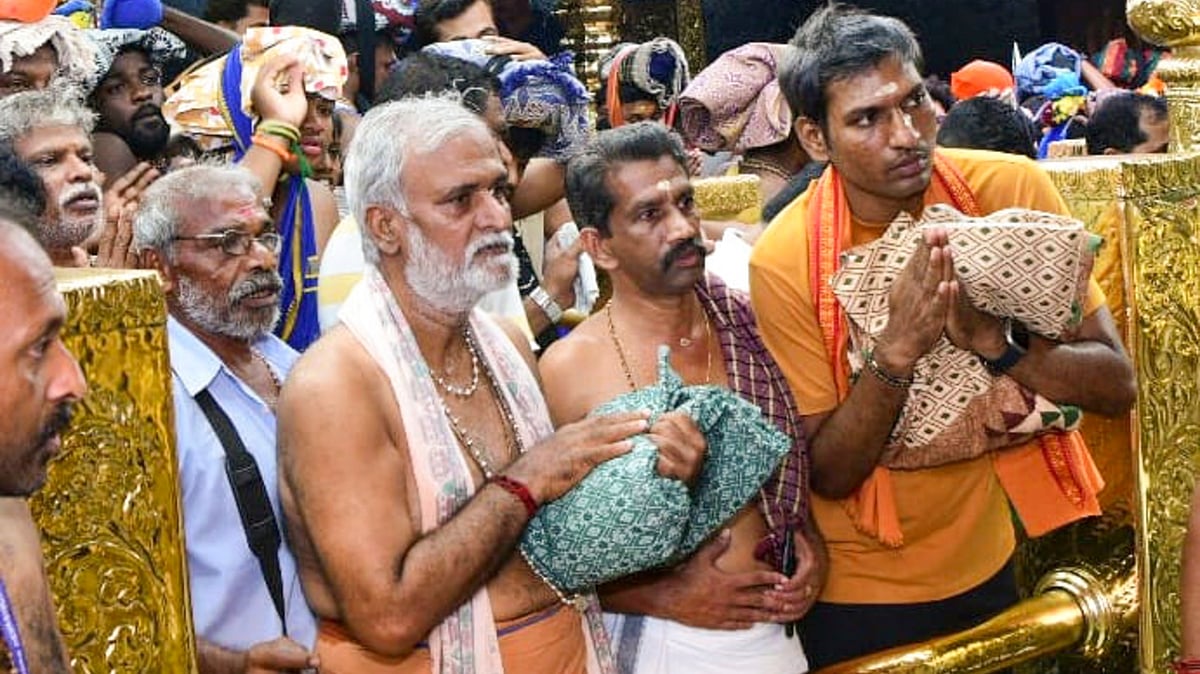 |
|
The recent protest outside a prominent Murugan temple in Tamil Nadu highlights a growing tension between the ruling DMK party and the BJP. The protest, organized by members of the Hindu Munnani and the BJP, stemmed from an incident where individuals, allegedly from the Muslim community, consumed meat on the temple hillock. This seemingly minor event has been amplified into a major political flashpoint, revealing deep-seated religious and political fault lines within the state. The DMK's sharp rebuke, characterizing the BJP's actions as an attempt to import the communal politics of North India into the more secular environment of Tamil Nadu, underscores the sensitivity of religious issues in the region and the inherent political maneuvering surrounding them.
The choice of location for the protest—a revered temple—was not accidental. The temple holds significant religious and cultural importance for many Hindus in Tamil Nadu, making it a powerful symbol to leverage for political gain. By choosing this location, the BJP sought to mobilize Hindu sentiment and potentially garner support among a crucial voting bloc. The DMK's counter-strategy of highlighting the difference between the political climate of Tamil Nadu and North India serves as a deliberate attempt to frame the BJP's actions as provocative and out of step with the local social fabric. This framing taps into a long-standing narrative within Tamil Nadu that emphasizes its unique cultural identity and relative tolerance compared to some other parts of India.
The incident raises questions about the delicate balance between religious freedom and public order. While the right to practice one's religion is fundamental, the context of the meat consumption near a sacred site clearly caused offense to many. The response from the Hindu Munnani and BJP, however, raises concerns about the potential for escalating religious tensions for political purposes. The DMK's response can be interpreted as an attempt to safeguard the state's reputation for relative communal harmony. This is especially important given Tamil Nadu's history of maintaining a generally tolerant and inclusive atmosphere compared to certain other regions known for more intense religious polarization. The success of this strategy hinges on the public's perception of both the BJP's actions and the DMK's response.
The underlying political dynamics are complex. The DMK, a Dravidian party with a history of advocating for social justice and secularism, is clearly positioning itself against the BJP's brand of Hindu nationalism. The BJP, on the other hand, is attempting to expand its influence in Tamil Nadu, a state where it has historically had limited success. This conflict is not merely about meat consumption; it represents a larger struggle for political dominance and the assertion of contrasting ideologies. The protest and subsequent political fallout highlight the challenges of balancing religious sensitivities, maintaining public order, and navigating the complex political landscape of a diverse state like Tamil Nadu.
Moving forward, the incident necessitates a measured and thoughtful response from all stakeholders. Open dialogue, mutual respect, and a commitment to peaceful coexistence are crucial to de-escalating tensions and preventing similar incidents from occurring in the future. Ignoring the underlying issues or allowing them to be exploited for political point-scoring would only deepen divisions and undermine the state's social harmony. The future political landscape of Tamil Nadu will likely be shaped by how effectively leaders address these issues and find a way to bridge the widening ideological gap between the major political players. The long-term consequences of the incident extend beyond the immediate political fallout; they underscore the urgent need for fostering tolerance and understanding to safeguard the peaceful coexistence of various communities in the state.
The success of either party's strategy will be judged by the electorate. Will the BJP's focus on religious issues resonate with Tamil Nadu's voters, or will the DMK's emphasis on secularism and its portrayal of the BJP as an outsider importing 'North Indian' politics prove more persuasive? The answer will likely depend on a number of factors, including the broader economic climate, the effectiveness of each party's campaign strategies, and, critically, the public's perception of the events surrounding the temple protest and subsequent political responses. The upcoming elections will provide a crucial test of public sentiment and a clear indication of which narrative prevails.
Beyond the immediate political ramifications, this incident raises broader questions about the future of religious tolerance in India. While the focus here is on Tamil Nadu, the underlying issues – the potential for exploiting religious sentiments for political purposes, and the need for fostering mutual respect and understanding – are relevant across the country. The event serves as a potent reminder of the fragility of communal harmony and the importance of vigilance in ensuring that differences in faith do not become a catalyst for conflict and division.
Source: Don’t fan communal tensions; this is Tamil Nadu, not North India: DMK to BJP
